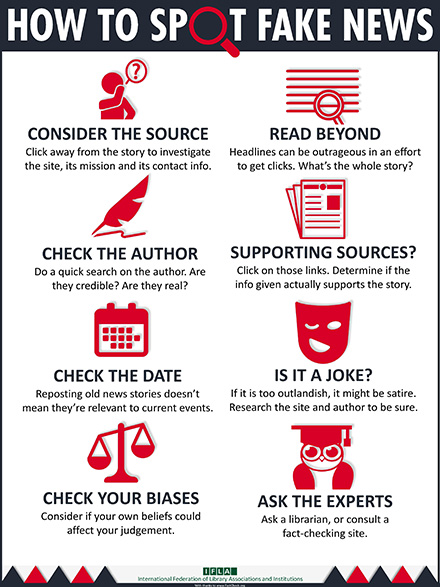
Currency
Reliability
Authority
Accuracy
Purpose/Point of View

The 5 W's of Web site evaluation
Ask yourself these questions when you come across a web site. The 5 W's will help you determine the reliability and currency of a website.
Who: Who wrote it? If it’s an organization, is it a business, school, government agency or something else? If an individual wrote it, is he or she an expert? Is a biography of the author included?
What: What kind of information does it have? Does the information relate to your topic or help answer your question? Is the site a blog, wiki, advertisement, article, or something else?
When: When was the site created? When was the web site last updated? Try and find the copyright information on the page you are viewing.
Where: Does the web address indicate .edu, .com, .org, .gov or something else? This will help determine who created the site. Where does the information come from? Where can I look to find out more about the sponsor of the site?
Why: Why was the site created? Is the website for entertainment use, to persuade you, sell you something or inform you? Is the intention or purpose clearly stated? Why should I use this information?
Domain Names
Is the site a .com, .edu, .org, .gov or something else? You can tell a lot about a website by looking at the end of the web address.
Most common Internet domain names:
These are the most common URL endings (or domains) used for web addresses.
Peer Review
Peer reviewed articles are found in academic or scholarly journals. They are written by scholars and experts, but there is an extra step before publication: Other equally qualified scholars and experts review each article for accuracy and significance before it can be published in a peer reviewed journal.